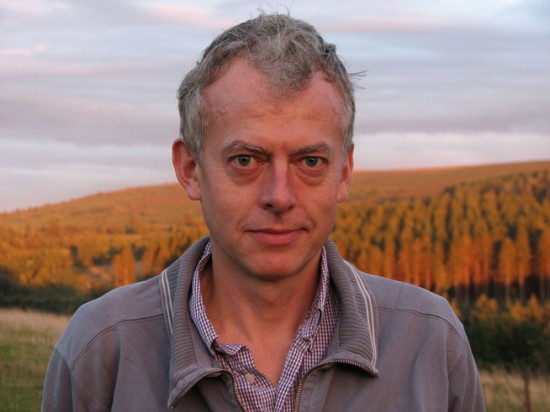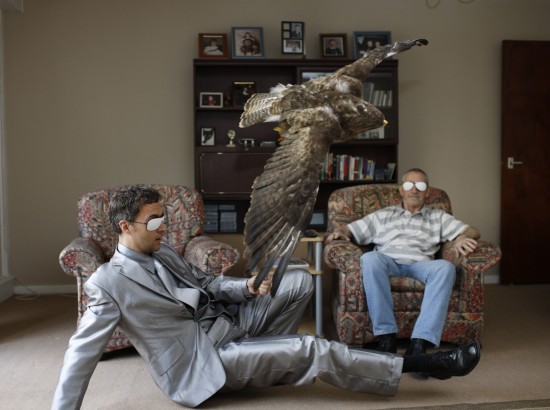
(Jeremy Mynott. Photo: Charlie Troman)
Over the next couple of weeks we will be introducing our Port Eliot line-up and today we start by announcing something we are all very excited about.
Regular readers of Caught by the River will have been following Ceri Levy’s ‘Bird Effect’ odyssey for some time now. Along the way he has introduced us to many interesting characters from the world of birds and this year he has invited a bunch of ’em to join us at Port Eliot, where from 3pm on Saturday (24th July) he will be hosting a Bird Effect Session.
The afternoon will be made up of talk, discussion, music and poetry and audience participation will be actively encouraged. The event is shaping up to be a unique happening and a really good opportunity to meet with and listen to some of the UK’s most well known bird lovers. The session will be filmed for inclusion in Ceri’s documentary.
Here follows the afternoon’s events followed by information on the guests;
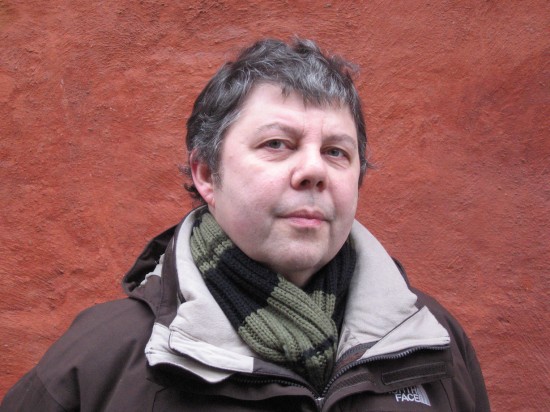
Ceri Levy is a documentary filmmaker, writer and producer and is best known for the documentary film Bananaz about the band Gorillaz. Ceri is at present working on a film about the way birds inspire and affect people. Its title is The Bird Effect. But you know that already.
For Port Eliot he has brought together a collection of people who have inspired him on his odyssey through the world of birds. Saturday afternoon at Port Eliot will be for the birds.
15.00 Ceri Levy introduces The Bird Effect – People From My Travels
15.15 Tim Birkhead – Darwin, Birds, Sex and Music
15.35 Jeremy Mynott – Looking and Listening: Birding as a Symptom and a Cure
15.55 Second Language – Music and Migration
16.15 Stephen Moss – The Nature of the Observer – Who Watches Birds, and Why?
16.35 David Lindo – Urban Birding
16.55 Phil Daniels – Gulls of Brixham
17.10 Tim Dee – A Lesser Spotted Love Song and How To Sing It
17.30 Marcus Coates – The Denominator
17.50 Round Up
18.00 Finish
Tim Birkhead;
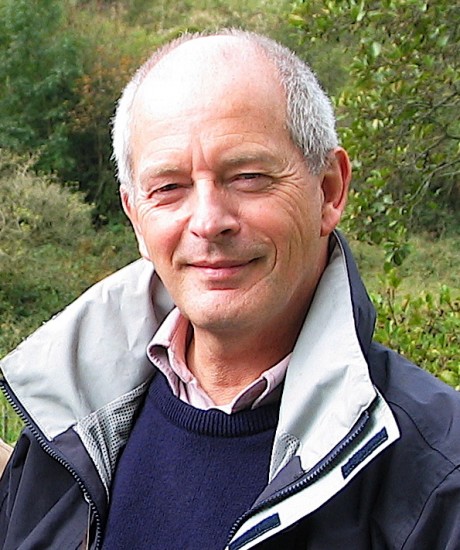
(photo: Isabelle Charmantier)
Like many of my generation of professional biologists, I was a fanatical naturalist as child. Encouraged by my father, a keen birdwatcher, and my mother who was an accomplished artist, I was indulged and allowed to keep birds in my bedroom whose walls I painted in my own designs. My mother gave me a sense of enthusiasm and my father instilled in me a strong work ethic. We lived in a rural area outside Leeds, and with a freedom almost unknown today, I spent countless wonderful days bird watching. My life revolved around birds: I raised young magpies, rooks, tawny owls and starlings and I had an aviary in the garden that I filled with foreign birds.
During a family holiday in North Wales when I was twelve my father took me to Bardsey Island for the day. I remember being thrilled by the thrift-covered cliffs, the azure seas and clear skies full of cheering choughs. As we walked back towards the boat at the end of the day we saw a young man sitting with a telescope and a notebook studying birds. My father casually said to me: ‘You could do something like that’, little realising how significant his comment was.
I went to Newcastle University to read zoology and I loved it. Then in the spring of 1972, I travelled from Newcastle to attend a student conference on birds at the Edward Grey Institute, Oxford. During the conference David Lack, the director (and arguably the greatest ornithologist ever), asked if anyone was interested in undertaking a D.Phil. there. Of course I was! Preferring to walk rather than sit, the ‘interview’ took place outside St Hugh’s College in the rain. I babbled on about my passion for birds and much to my surprise by the time I returned to Newcastle an offer of a D.Phil. place was waiting and with it, the opportunity spend three summers on another island, Skomer, off the coast of Wales studying guillemots.
The guillemot was a fortuitous choice. Although I had no idea when I started that despite being socially monogamous, this species was sexually rather promiscuous. One thing lead to another and utilising the avicultural skills I had acquired as a teenager, made the study promiscuity in birds the main focus of my research. In addition though, the Edward Grey Institute in Oxford also houses one of the best ornithological libraries in the world and it was here during the winter evenings that I started to discover the extraordinary history of birds, culminating – some thirty years later – in ‘The Wisdom of Birds’.
Jeremy Mynott;
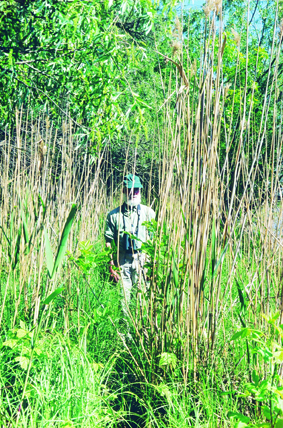
I spent almost all my professional career in publishing at Cambridge University Press, working successively as editor, editorial director, managing director and chief executive (see Who’s Who for dates and details). I travelled widely in the course of this work and was able in my hard won leisure time to pursue my life-long interest in birds in many parts of the world, especially in the USA. My home patch, however, is and has always been East Anglia, and now in particular Suffolk where I have lived for the last 25 years, though I still make regular excursions to watch birds in such favourite places as the Hebrides, the Isles of Scilly, the Volga Delta and New York’s Central Park.
I have mused a good deal about the place of birds in our lives and the reasons we react to them as we do and have gathered my thoughts on this in a book, Birdscapes: birds in our imagination and experience which was published by Princeton University Press in 2009.
I am a Fellow of Wolfson College, Cambridge and am currently translating Thucydides for an edition to be published in the series, Cambridge Texts in the History of Political Thought. My next project will then be a translated anthology of writings about birds in the ancient world.
Second Language: Music & Migration;
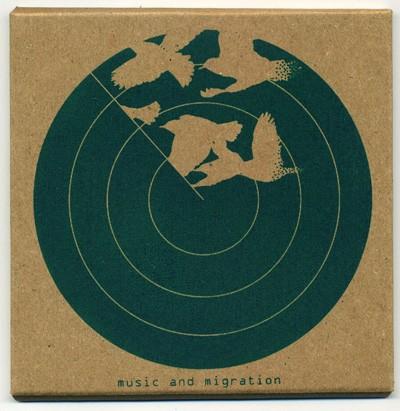
Having launched a MySpace page with the self-explanatory title Music & Migration, detailing the encroaching threat to itinerant birdlife, Martin Holm set about finding sympathetic musicians, hoping he might secure a smattering of tracks which, would, in turn, attract traffic to the site. To do this, he simply looked along his record shelves and selected his favourite artists from the world of post-classical composition, contemporary folk song and ambient soundscaping – musicians whose work, to varying degrees, enjoys an implicit relationship with landscape and the natural world. The artists he chose to approach included American wunderkind composer Peter Broderick, German prepared piano maestro Volker Bertelmann – aka Hauschka, British cellist Danny Norbury, Type Records head honcho and electronic artist John Twells – aka Xela, former Hefner frontman Darren Hayman and celebrated UK soundscapers Richard Skelton and Leyland Kirby – all substantial ‘names’ in their fields. With them on board, he reasoned, Music & Migration could start fulfilling its titular brief.
Among the legion musicians with whom it chimed were two of Martin’s London-based friends – Glen Johnson (of the band Piano Magic) and, David Sheppard. Little persuasion was needed to have them donating music to the Music & Migration site – indeed they were completely enamoured of the whole project. As they listened to the accumulation of tracks, it quickly dawned on them how great this music would be sequenced into a ‘proper’ compilation record. Martin, Glen and David were so excited by this prospect that they began hatching plans for a bespoke record label to release the compilation. This would become Second Language.
Stephen Moss;
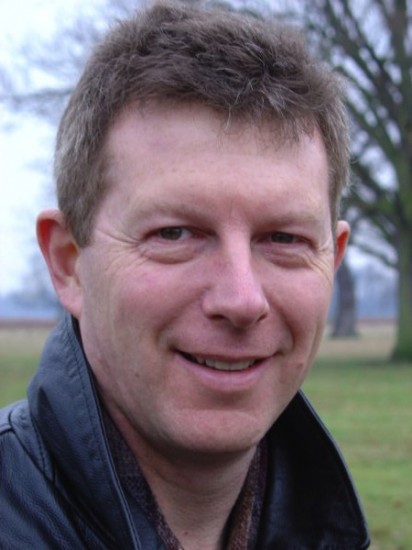
(Photo: Suzanne Moss)
Stephen Moss is a television producer, writer and broadcaster specialising in British wildlife, especially birds.
He works at the BBC Natural History Unit in Bristol, where he has been responsible for many successful series, including Birding with Bill Oddie, Big Cat Diary, The Nature of Britain and Springwatch. He is currently producing Birds Britannia, a series on the cultural and social history of birds and the British, for BBC Four.
He writes a monthly column on birdwatching for The Guardian, and regularly contributes to magazines and radio programmes.
His books include A Bird in the Bush: a Social History of Birdwatching, This Birding Life, A Sky Full of Starlings and The Bumper Book of Nature.
He is married with five children, and lives on the Somerset Levels.
David Lindo;
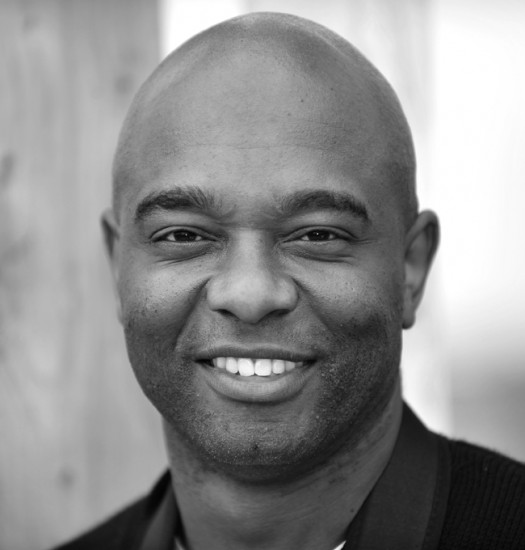
(Photo: Russell F Spencer)
David Lindo is The Urban Birder – a twitcher in the womb and was born clutching for a pair of binoculars. Birding was natural for him despite having no mentors as a kid in his native north west London.
He brings a fresh, urban perspective to modern birding. Tipped as the next younger, hipper Bill Oddie, David first appeared on our screens as a contributor on Springwatch in 2006 where he took viewers for a guided bird walk around his ‘garden’ Wormwood Scrubs, in west London. Since then, he has appeared on several television programmes including ITV 1’s Countrywise and is a regular natural history presenter on the BBC1’s primetime hit The One Show where he shares his love for urban birds and wildlife with the nation.
From a very early age David knew that he was destined to be into wildlife. If you asked him what kicked off his interest in natural history, he would probably tell you that it came from a previous life! At the age of 8 he led ‘tours’ around his primary school woods for his schoolmates. It was also at this tender age that he obtained his first pair of binoculars, bought for him by his mother on HP for the princely sum of £14!
Previously Head of Membership at the British Trust for Ornithology, David is the author of many articles on urban birds and writes for various websites and magazines including the RSPB’s membership magazine – Birds with a readership in excess of 3 million, Bird Watching Magazine – Britain’s best selling birding publication and the award winning BBC Wildlife Magazine. He has also featured on BBC Radio 4, BBC Radio 5 Live, BBC Radio 2 and many regional stations including BBC London 94.9 where he regularly reviews the morning’s papers and even answers the occasional wildlife question!
David is currently a patron of Alderney Wildlife Trust, The Disabled Birders Association and the Spitalfields City Farm. He is also the Chairman of the London Bird Club part of London Natural History Society and is on the committee of The Friends Of Wormwood Scrubs.
www.theurbanbirder.com
Phil Daniels;
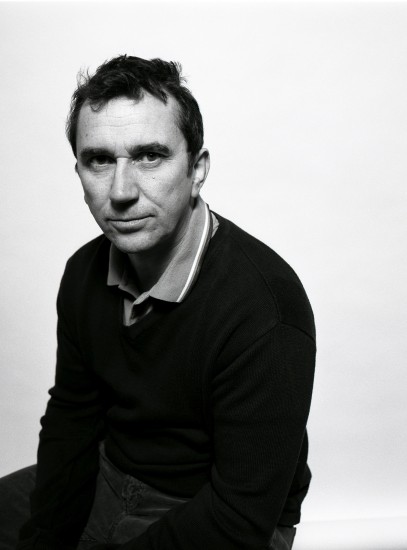
(Photo: Derrick Santini)
Phil Daniels’ professional career spans thirty five years of stage, screen and rock ‘n’ roll – from the classics at the Royal Shakespeare Company to cult classics such as Mike Leigh’s Meantime, Alan Clarke’s Scum, Quadrophenia and Blur’s Parklife.
A graduate of the groundbreaking Anna Scher Theatre in the 1970’s, Daniels has always stayed true to his working-class roots, lending his roles authenticity and integrity. With his distinctive voice, cheeky mistrust of authority figures and wicked sense of humour, Daniels remains a driven individualist committed to his craft.
His autobiography ‘Class Actor’ was published in March 2010.
Tim Dee;
Tim Dee was born in Liverpool in 1961 and grew up in Surrey and Bristol. He now divides his time between Bristol and the Cambridgeshire fens. He has worked as a radio producer at the BBC for twenty years. ‘The Running Sky’, his memoir of his life as a birdwatcher was published in 2009. The same year, he co-edited with Simon Armitage an anthology called ‘The Poetry of Birds’. He is at work on a new book about four fields around the world.
Marcus Coates;
Coates’ practice questions how we perceive humaness through imagined non-human realities. An extensive knowledge and understanding of british wildlife has led him to create unique interpretations of the natural world and its evolving relationship with society.
An aspect of Coates’ recent work sees him as a ‘useful social agent’ or problem solver. Using his skills and position in society as an artist and his knowledge of British Wildlife he seeks resolutions to social issues for clients. Through self designed rituals informed by traditional cultures he consults a non conscious world of animals and birds to seek relevant information.
He has performed ‘consultations’ with a variety of clients:
Ikebukuru Council, Tokyo, Japan
The Mayor of Holon, Israel
A Residents Housing Association in Liverpool, UK
City Council of Stavanger in Norway.
Their problems range from illegal cycle parking, prostitution and the Israeli/Palestinian crisis.
Coates’ videos, performances and installations have been shown internationally.
Tickets for the Port Eliot Festival are now on sale from their website. www.porteliotfestival.com
